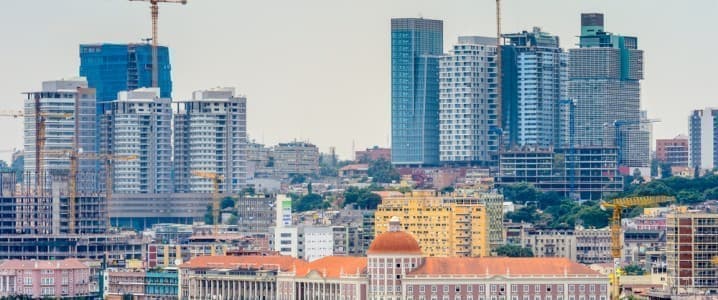Business
Sonangol Plans Ambitious IPO to Transform Angola’s Economy

Angola’s state oil company, Sonangol, is set to embark on a landmark initial public offering (IPO) that will see up to 30% of its shares listed within the next 24 months. This transformative move aims not only to reshape the company but also to influence Angola’s economic landscape significantly. For decades, Sonangol has acted as a financial backbone and political instrument for Angola, making this decision to partially privatize a pivotal moment in the country’s ongoing reform agenda under President João Lourenço.
The IPO reflects years of restructuring efforts. Once a sprawling conglomerate with interests in various sectors such as banking, airlines, real estate, and telecommunications, Sonangol faced challenges of inefficiency and lack of transparency. Since 2017, the Lourenço administration has aimed to streamline operations and divest non-core holdings. The IPO is intended to validate this effort while positioning Sonangol for a new phase of growth.
Other national oil companies (NOCs) have successfully navigated similar paths. For instance, Petrobras in Brazil has raised billions through capital markets while maintaining state control. Despite facing political challenges and corruption issues, Petrobras has transformed itself into a technically proficient operator with sustained access to financing. Similarly, Equinor from Norway and KazMunayGas from Kazakhstan illustrate how state-owned firms can balance national interests with the expectations of public shareholders.
With Angola’s oil production declining from a peak of 1.8 million barrels per day (bpd) in 2008 to approximately 1.1 million bpd today, reversing this trend will require substantial upstream investment. Accessing equity markets through the IPO could provide essential funding, particularly as global capital becomes increasingly selective due to the energy transition.
The significance of this IPO extends beyond financial implications. It is part of a broader initiative by the Lourenço administration to diminish the state’s overwhelming influence in the economy. Through the government’s PROPRIV program, numerous state-owned enterprises are slated for privatization, with Sonangol being the most ambitious project to date. A successful and credible listing could signal to global investors that Angola is committed to reforms and open for business.
While the potential for investment is considerable, challenges loom. Investors will evaluate Sonangol’s valuation in light of diminishing reserves and the uncertain future of oil demand. Governance will also come under scrutiny due to the company’s historical ties to political patronage. Nevertheless, a well-executed partial privatization could enhance accountability and bind Sonangol to the discipline expected by shareholders.
The implications of Sonangol’s intended IPO are significant for other African NOCs, such as Ghana’s GNPC and Algeria’s Sonatrach, which also grapple with similar challenges of aging production and rising investment needs. If Sonangol can demonstrate that partial privatization leads to both capital influx and enhanced credibility, it may provide a viable model for other firms across the continent.
Africa’s potential in upstream oil and gas is vast, yet the landscape for global capital is increasingly discerning. Investors are focusing on governance, emissions intensity, and long-term resilience. A successful IPO could illustrate that African NOCs can adapt to these new market demands by integrating national control with the transparency that investors seek.
If executed successfully, the Sonangol IPO could offer Angola far more than just financial resources. It could stimulate upstream investments, support broader privatization reforms, and enhance the country’s position in a competitive energy market. Furthermore, it presents an opportunity for Sonangol to transform itself into a credible operator on the global stage, similar to how Petrobras leveraged its market listing to finance Brazil’s deepwater ventures.
In essence, this IPO is not merely about Sonangol’s financial health; it represents a broader evolution for African NOCs amid domestic and global pressures. The stakes are high, and success could usher in a new era of access to capital, institutional integrity, and long-term competitiveness for Africa’s energy sector. The potential impact of this IPO extends beyond Angola, with the possibility of setting a precedent for the future of oil and gas in Africa.
-

 World3 days ago
World3 days agoCoronation Street’s Shocking Murder Twist Reveals Family Secrets
-

 Entertainment4 months ago
Entertainment4 months agoKate Garraway Sells £2 Million Home Amid Financial Struggles
-

 Entertainment3 months ago
Entertainment3 months agoAnn Ming Reflects on ITV’s ‘I Fought the Law’ Drama
-

 Health3 months ago
Health3 months agoKatie Price Faces New Health Concerns After Cancer Symptoms Resurface
-

 Entertainment3 weeks ago
Entertainment3 weeks agoCoronation Street Fans React as Todd Faces Heartbreaking Choice
-

 World4 weeks ago
World4 weeks agoBailey Announces Heartbreaking Split from Rebecca After Reunion
-

 Entertainment6 days ago
Entertainment6 days agoTwo Stars Evicted from I’m A Celebrity Just Days Before Finale
-

 World6 days ago
World6 days agoKevin Sinfield Exceeds Fundraising Goal Ahead of Final Marathons
-

 Entertainment3 months ago
Entertainment3 months agoCoronation Street’s Carl Webster Faces Trouble with New Affairs
-

 Entertainment3 months ago
Entertainment3 months agoWhere is Tinder Swindler Simon Leviev? Latest Updates Revealed
-

 Entertainment4 months ago
Entertainment4 months agoMarkiplier Addresses AI Controversy During Livestream Response
-

 Science2 months ago
Science2 months agoBrian Cox Addresses Claims of Alien Probe in 3I/ATLAS Discovery

















